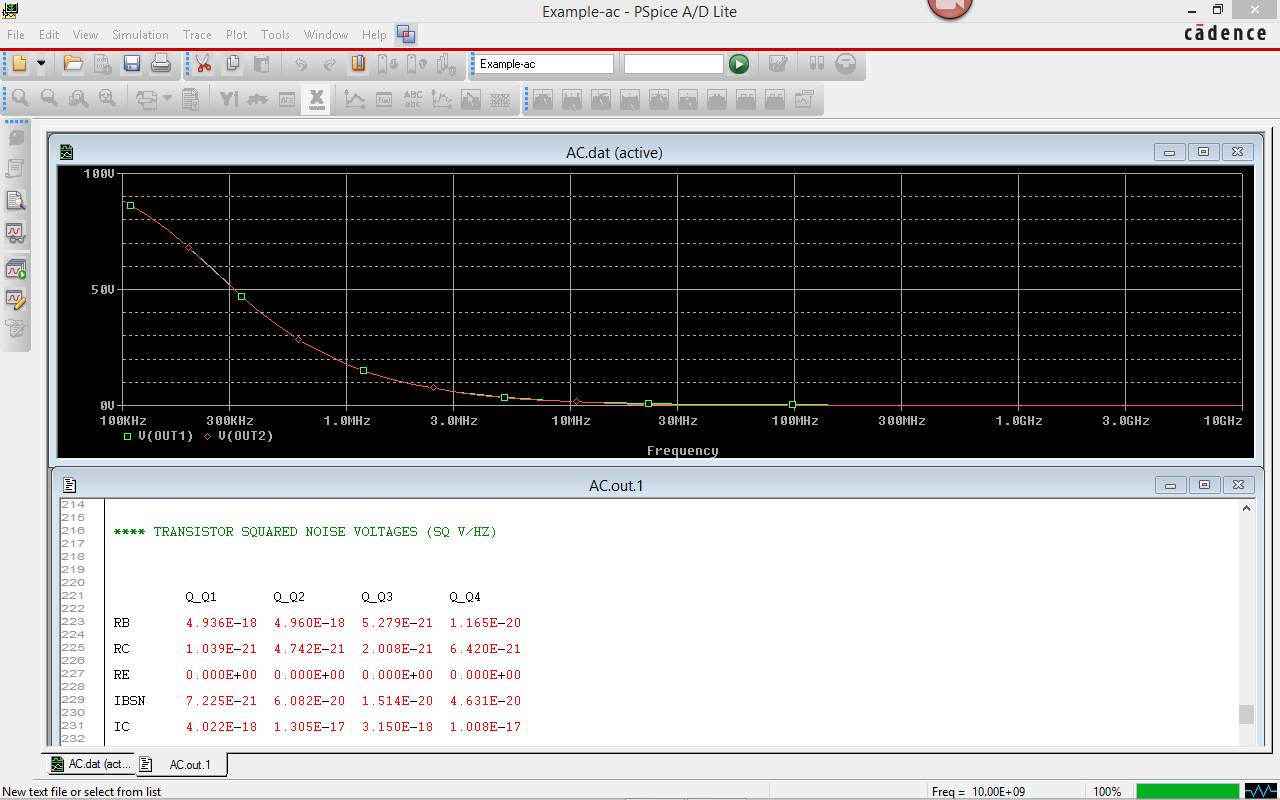Interface Technologies’ PSpice Training helps users maximize the benefits of using PSpice. Benefits include the following:
- Minimize the time to learn PSpice and Schematic Capture
- Hands-on, interactive training experience solidifies concepts
- Highlight and explain commonly used product features
- Explanation of menus and control options
- Includes a simulation methodology that provides predictable, successful results
- Provide a learning experience that amplifies the benefits of using simulation software
Introduction to PSpice A/D with OrCAD Capture (or Design Entry)
CONTENTS OF THE 2 DAY CLASS
- Schematic Capture for PSpice A/D Simulation
- Overview of menus, icons
- Overview of PSpice analysis
- Keyboard shortcuts
- DC operating point
- Flat Designs
- AC sweep
- Hierarchical Designs
- Transient Analysis
- Creating a Hierarchical Block
- Waveform displays
- Connecting Hierarchy layers with Ports
- Automatic measurements
- Navigating through hierarchy
- Parametric Sweeping
- Symbol Libraries
- Monte Carlo
- Various methods of creating new symbols
- Worst Case Analysis
- Creating libraries of user defined symbols
- Digital Simulation
- Downloading models from the Internet
- Mixed Signal Simulation
- Attaching symbols to simulation models
- Simulation Libraries
- Installing downloaded models into PSpice
- Understanding Spice Models
- Creating new parameters for existing models
- Creating new models
Class Format
The classes are a mix of Presentation and hands-on labs. The labs use small circuits, and a demo version of the software is provided for each student. If you already have a full version of the software on your computer, it is possible to load both copies (demo and full version), they don’t interact. I can provide the demo software before the class, if you’d like to preinstall it on the students’ computers.
The typical Introduction to PSpice and Schematic Entry follows this schedule:
Day 1
- Schematic Capture for Analog use… drawing a schematic, flat and hierarchical schematics
- LAB: Flat and Hierarchical Schematic example
- PSpice overview: Simulation types, Single and Multirun
- LAB: DC, AC sweep, Transient, Sources “do’s and don’t’s”, using the scope and making measurements, waveform display tools
- Multirun analysis presentations and labs:
- Parameter sweeping
- Tolerance Analysis
- Monte Carlo
- Sensitivity/Worst Case
Day 2
- Completion of Multirun labs, if necessary
- Spice presentation: how it works, Simulation options, convergence issues and solutions
- Models: Intrinsic and Subcircuit models, Library structure, Adding your own models
- LAB: Installation of a downloaded model, Generating a model using the model editor, building a subcircuit model from a schematic
- Analog Behavioral Models presentation and lab
- Transformer models and lab
- Analog/digital simulation capabilities overview and lab
- Getting your data in and out of PSpice for documentation purposes
- Review, Q and A
Onsite Classes
The standard class is 3 days long.
There is an optional 4th day, which has a flexible format. We have a selection of material that we generated by customer request over the years. Once the introductory 3 day class is given, we can custom configure modules from the list below and present them to your engineers. The material extends the training from the Introduction class, and assumes that the students already grasp the fundamentals of the software. The length of time required to present the materials and do the labs varies by subject, and it’s best to have a phone discussion to determine what the proper amount of time is required to cover the desired subjects.
Popular Subject matter for optional 3rd/4rth day Content
- Hands-on Customer Application Students bring one or two projects that they are working on. Parts of the design will be entered, simulated, and analyzed. As problems or issues arise, the instructor will provide assistance related to modeling, spice problems, and the most productive approach to using simulation as a tool to assist the student.
- Power Supply Modeling and Simulation Many users of PSpice are doing Power Supply Design. This extra day is devoted to issues and techniques of using PSpice for the design of power supplies. Some of the subjects included are PWM controller models, Transformer modeling, overcoming convergence errors, and how to use some of the more advanced simulator options to maximize the amount of results generated. Example topologies are provided for a hands-on lab, with ready to simulate designs.
- Introduction to Modeling In one day, we cover approaches to adding parasitics to you passive components, assigning tolerances, assymetrical and user definable tolerance distributions, temperature effects, modeling transformers, generating a custom user library with symbols, and applying these techniques to your designs.
- Any of the subjects listed on the PSpice Master’s Class page
PSpice Training 2024 Schedule: US Locations
| Subject | Class Dates | Location |
|---|---|---|
| Introduction to PSpice and OrCAD Capture | Mar 12-14 2024 | Los Angeles CA area |
| Introduction to PSpice and OrCAD Capture | May 15-17 2024 | Denver CO area |
| Introduction to PSpice and OrCAD Capture | Oct 16-18 2024 | Chicago IL area |
| Introduction to PSpice and OrCAD Capture | Dec 17-19 2024 | Phoenix AZ area |
| Introduction to PSpice and OrCAD Capture | Special Arrangement | Onsite, please inquire to schedule |
| Introduction to PSpice and OrCAD Capture | Special Arrangement | On-lline, Virtual. Please inquire if interested. |
Classes are held monthly throughout the United States. The cost for the two day Introduction to PSpice with OrCad Capture class is $2395/student, and includes the three days of training, lunch each day, an evaluation copy of the PSpice software, and a certificate of achievement/completion.
or contact Dan Waterloo to discuss your requirements.
tel: +1 (708) 366-4411
email: dan@i-t.com


